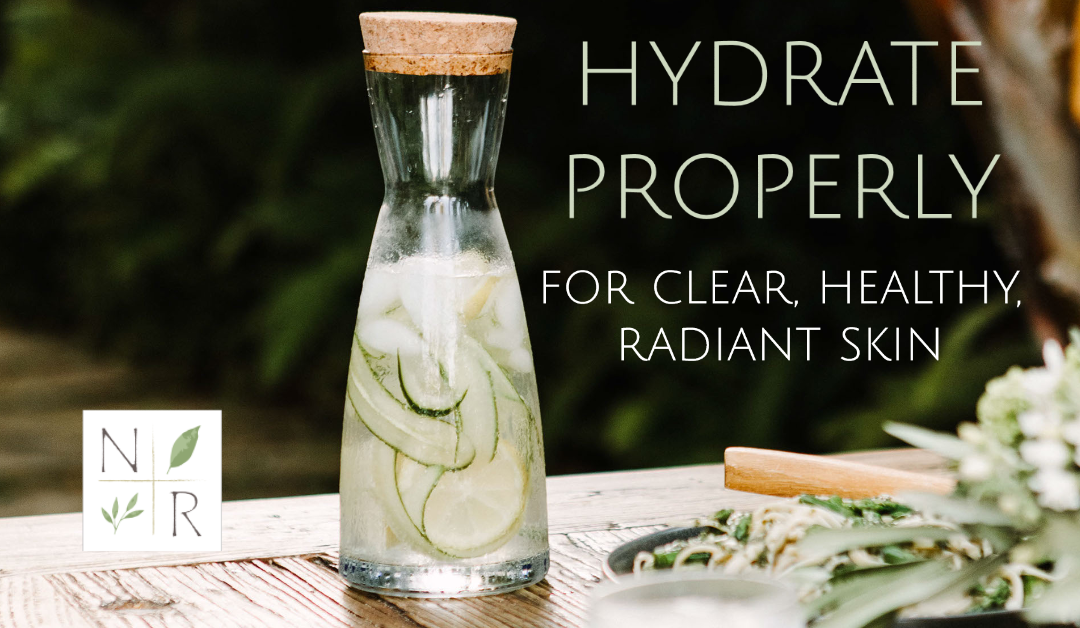Proper hydration is paramount to keeping your skin and body healthy. Being dehydrated can cause disruptive sleep, make you sluggish, give you lack-luster looking skin, make wrinkles more prominent, and have a huge impact on the functionality of your organs including your brain, and much more.
You are told to drink 64 oz of water a day. Well, that is probably not enough for most people. Not to mention it depends on the rate of intake and if electrolytes are included. Here is a very quick break down on what you need to know:
1. Your body can only absorb so much water at a time.
Drinking 64oz all at once and thinking you are good to go for the day is not correct. The average amount of water a body can absorb under normal conditions (considering temp/humidity/activity level) is about 17oz or ½ liter per hour.
Exercising vigorously, living in a hot and/or dry climate, high altitude, etc. all have an impact on the “64oz”. Most people need more fluids. I personally drink around 120oz – 140oz per day. Is that just water? Absolutely not because hyponatremia would be an issue. Keep in mind, I also workout at a very high intensity for 1-2 hours per day, I live and work in high altitude, dry, hot climates and fly in pressurized aircraft almost daily during the summers. The air on pressurized aircraft is exceptionally dry which has a huge impact on hydration. Humidified air does not draw out as much moisture from your body as dry air. I did not realize this fully until one of our airplanes had a machine that humidified the air. What a difference!! Breathing in moisture from the air makes a big difference.
2. Enhance your fluid intake with electrolytes.
Mainly calcium, sodium, potassium and magnesium. I do not suggest sports drinks or vitamin/electrolyte wafers you add to water as I prefer natural methods of nutrition and the ingredients can be toxic. Adding a LITTLE Himalayan sea salt or Redmond Real Salt to your water is an excellent way of properly hydrating. Adding too much salt will dehydrate you. There is a balance and if you listen to your body, it will tell you where that is for you. Another option is to eat foods in regular intervals that are high in electrolytes. Watermelon water and coconut water are also amazingly high in electrolytes and should be part of any regular hydrating routine.
3. Juicing
Juicing vegetables and fruits is an excellent way of hydrating while providing a massive amount of healthy nutrition at the same time.
4. Rate of fluid intake
I cannot say it enough – the rate at which you intake fluids is extremely important. Spread it out consistently throughout the hours you are awake.
Another good test is to pinch together the skin on the back of your hand between the pinky and ring fingers. If it immediately goes back to normal after you release it with no sign you pinched it, you are doing excellent with your hydration. The longer the delay in returning to normal, the more dehydrated you are. Doctors and nurses use this trick on patients all the time!

